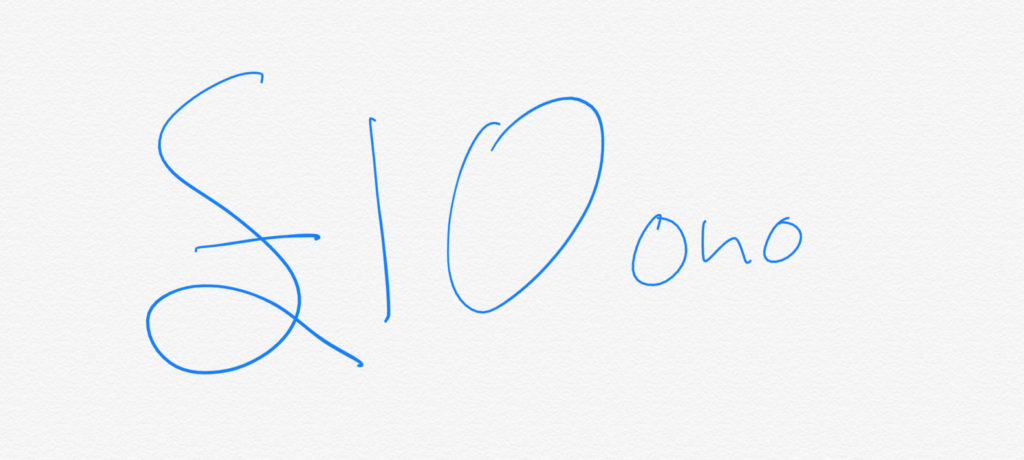I was once asked to write something overnight, someone had let somebody down, something had changed, I don’t remember. But I do remember being asked to name my price and I doubled what this company usually paid me.
That’s very nice and I felt very good for about a pixel of a second because while they said yes, they said it with such obvious relief that it was clear they’d have gone far, far higher. For the sake of any claim I make of being a professional writer, I need to tell you that I then billed for that emergency rate for every single project I did for them.
Here’s the thing, though. The writer in me can go into paralysed circles over what I should be paid. The human being in me can go into a rage when, for instance, women writers are being paid less than men.
There’s no but in that one, incidentally and obviously. Women, men, equal pay, not one but, not one question, not one ever.
But.
That’s about minimums. And I’ve been in conversations this week where I think there was a belief that it should apply to maximums, too. There was definitely a moment where an idea of capping writers’ pay so no one could get more than some amount came up and wasn’t shot down instantly. These were writers suggesting this and there were circumstances, it didn’t come out of nowhere, but I said to them and I’ll say to you, no.
No caps. Every other bugger wants to limit our pay, we can’t enable them to do it.
There’s something British about this. I’ve been thinking about it all week and it reminds me of how in the UK, you don’t tend to haggle. The price is the price, you pay it or you don’t, it’s not that common to negotiate. I’m the same, I tried it once over a fridge or something and got nowhere.
Anyway. I think the logic was that if you are writing a one-hour drama for primetime television then it’s the same job for everyone. Takes the same time, is physically the same amount of words and pages, of course it should earn the same money.
I’m too polite to say this aloud myself, so please take the rudest word you can think of and prefix it with the phrase fucking bollocks.
Men and women, yes, of course, you must not, you cannot be paid more or less just because of which genitals you happen to have. Age, too, I’d definitely agree that a writer’s age is no more an important factor in fee negotiations than their shoe size.
I hesitate over experience, a bit. There is an increased rate for writers when they are experienced and there are good reasons for it, good and practical reasons, but I’ve also known writers who’ve written for years and just aren’t all that great at it. Still, experience, if I don’t back that as vehemently as I do the men/women equal pay issue, I’m not against experienced writers being paid more.
Where I will stand and if necessary fall is over this presumption that writing a one-hour drama is the same regardless of who you are.
Let’s say that you are not a writer, you’re a producer and you are now producing a series. You commission me to write one episode and you commission Phoebe Waller-Bridge to write another. There are immediately, instantly two very clear things you and I know both about these two episodes.
First, with deep and miserable regret, we both know that her episode is going to be better than mine. She’s a better writer than I will ever be, although I’ll be damned if I’m not going to try.
Second, you also know that she’ll be paid more than I will.
Of course she will be and of course she should be. She’s better than I am. I can’t comprehend an argument where I should be paid the same as her. She’s better, her script will be better, the show will be better, it is worth it to you as a series producer to pay more for her work.
That’s where people get this wrong, I think, and it’s where writers get it wrong, I’m afraid. We talk a lot about how important we are to drama because, well, there ain’t any drama without writers. But at the same time we deeply undervalue ourselves and where minimum rates are fair, maximums are not. It is worth a show paying more for certain writers, just as on a pretty infinitely smaller scale, it was worth it to that company to pay me more when they needed something written overnight.
Writers do feel undervalued and we are, certainly. There are actors who claim to have invented your characters, for instance. Even good actors are more likely to thank a director than a writer, although actually I get that: by the time the cast is on board, writers can be gone to the next project. Of course you’re going to bond more with the people you actually work with.
I just think writers undervalue themselves too. And in making a case for fees that assumes all writers are the same, are of the same talent and worth, is not standing up for our rights. It’s more like being colonised.
I think this is the killer argument and apparently I’m wrong as writers I talked with this week were not even injured by it. Still, it’s this and it convinces me at least: if you don’t pay a great writer more, some other show will and you’ll lose her.
